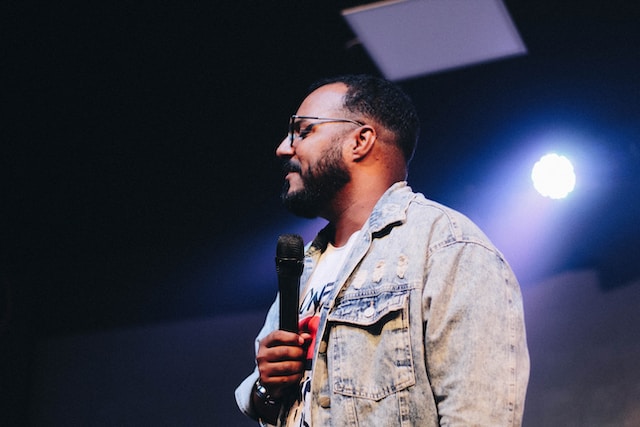If you’re a church member and have developed a close relationship with your pastor, you may wonder if their affection for you may be more than just pastoral care.
It can be confusing and uncomfortable to find yourself, and it’s important to know how to recognize the signs of a pastor who may have romantic feelings for you.
In this article, we’ll explore common behaviors and actions that may indicate that your pastor is in love with you.
It’s important to note that pastors are human beings capable of developing romantic feelings like anyone else.
However, pastors also hold a position of authority and trust within their congregations, which can make it difficult to navigate any potential romantic feelings.
As a member of their congregation, it’s essential to be aware of the signs that your pastor may be crossing boundaries and entering into inappropriate territory. We’ll explore some of these signs in more detail in the following paragraphs.
Table of contents
Pastoral Roles and Boundaries

As a congregation member, it’s essential to understand your pastor’s role and the boundaries within that relationship. While pastors are there to provide spiritual guidance and support, it’s important to remember that they are not your friend or therapist.
One of the primary roles of a pastor is to provide spiritual guidance and support to their congregation. This includes leading worship services, counseling, pastoral care, and offering advice on matters of faith and morality. However, it’s important to remember that pastors are not trained therapists and should not be relied upon to provide extensive counseling or mental health services.
Another important aspect of pastoral roles and boundaries is maintaining appropriate physical and emotional boundaries. While it’s natural to feel a strong emotional connection to your pastor, it’s important to remember that they are not your romantic partner or close friend. Physical contact should be limited to appropriate gestures such as handshakes or hugs, and personal boundaries should always be respected.
It’s also important to remember that pastors are human and may have their struggles and challenges. While it’s natural to want to confide in your pastor and seek their advice, respecting their privacy and boundaries is important. If you have concerns about your pastor’s behavior or conduct, it’s important to address these issues with a trusted church leadership team member.
In summary, understanding pastoral roles and boundaries is essential for maintaining a healthy and respectful relationship with your pastor. By respecting their role as a spiritual leader and maintaining appropriate boundaries, you can build a strong and meaningful relationship with your pastor while retaining the necessary boundaries to keep the relationship healthy and respectful.
Recognizing Professional Versus Personal Behavior

As a member of a congregation, it is important to be able to distinguish between the professional and personal behavior of your pastor.
While pastors are meant to care for their flock, it is important to recognize when their behavior crosses a line and becomes inappropriate.
Here are a few ways to recognize the difference:
Analyzing Pastoral Interactions
Professional interactions with your pastor may include counseling sessions, prayer meetings, and church events.
On the other hand, personal interactions may involve your pastor seeking you out for one-on-one meetings or socializing outside of church events. 3
If your pastor consistently seeks out personal interactions with you, it may be a sign that their behavior is crossing a professional boundary.
Assessing Communication Patterns
Professional communication from your pastor may involve discussing church events, offering spiritual guidance, or answering questions about faith.
Personal communication may involve discussing personal matters, sharing intimate details about their life, or making inappropriate comments. If your pastor is regularly engaging in personal communication with you, it may be a sign that their behavior is crossing a professional boundary.
Distinguishing Personal Attention
Professional attention from your pastor may involve offering support during times of crisis, providing spiritual guidance, or offering prayer. Personal attention may involve excessive compliments, inappropriate physical contact, or seeking out private time with you. If your pastor consistently seeks your attention, it may be a sign that their behavior is crossing a professional boundary.
Remember, trusting your instincts and speaking up if you feel uncomfortable with your pastor’s behavior is important. Pastors are responsible for maintaining professional boundaries and ensuring their congregation’s safety and well-being.
Identifying Signs of Romantic Interest

If you suspect your pastor may be in love with you, it’s important to look for signs of romantic interest.
Remember that not all of these signs necessarily mean that your pastor is in love with you, but they may indicate some level of attraction or interest.
Analyzing Body Language
Body language can be a powerful indicator of romantic interest. If your pastor frequently touches you, leans in close, or maintains prolonged eye contact, these may be signs that they are attracted to you.
Additionally, if your pastor seems nervous or fidgety around you, this may signify romantic interest.
Noticing Favoritism
Another potential sign of romantic interest is favoritism. If your pastor consistently gives you preferential treatment, such as inviting you to private meetings or events, this may be a sign that they have feelings for you. However, it’s important to note that favoritism can also be a sign of manipulation or abuse, so it’s important to be cautious and seek outside support if you feel uncomfortable.
Interpreting Verbal Cues
Verbal cues can also be a helpful way to gauge your pastor’s feelings. If your pastor frequently compliments you, asks personal questions, or shares intimate details about their life, these may be signs of romantic interest. Additionally, if your pastor often uses terms of endearment, such as “sweetheart” or “honey,” this may also be a sign of attraction.
Remember, it’s important to approach these signs with caution and seek outside support if you feel uncomfortable or unsafe. While it’s possible that your pastor may have genuine feelings for you, it’s also possible that they may be using their position of power to manipulate or control you. By staying aware and seeking support, you can protect yourself and make informed decisions about your relationship with your pastor.
Navigating Personal Feelings and Attractions

Self-Reflection on Your Feelings
If you suspect your pastor may have feelings for you, it’s important to take a step back and reflect on your feelings. It’s easy to become flattered or even infatuated with someone who shows us attention and affection, especially if that person is in a position of authority or power. However, it’s important to ask yourself if your feelings are genuine or simply a response to the attention you are receiving.
Take some time to think about your values and priorities. Are you looking for a romantic relationship at this time in your life? If so, is your pastor the right person for you? Are there any potential conflicts of interest or power dynamics that could make a relationship inappropriate or unhealthy? It’s essential to be honest with yourself about your intentions and motivations.
Understanding the Impact on the Congregation
Even if your feelings are mutual, it’s important to consider the impact a romantic relationship with your pastor could have on the congregation. Your pastor is a spiritual leader and role model for many people, and a relationship with a congregation member could be seen as a breach of trust or an abuse of power. It could also create tension and division within the congregation.
Consider the potential consequences of a relationship with your pastor, both for yourself and the congregation. Are you willing to risk your reputation and your standing within the community? Are you prepared for the scrutiny and judgment of a public relationship?
Ultimately, it’s up to you to make the best decision for you and the congregation. However, it’s important to approach the situation with a clear head and a deep understanding of the potential consequences. By reflecting on your feelings and considering the impact on the congregation, you can make an informed decision true to your values and priorities.
Seeking Advice and Counsel

If you suspect your pastor may have feelings for you, seeking advice and counsel from trusted individuals is important. This can help you gain perspective and clarity on the situation. Here are some options to consider:
Consulting Trusted Individuals
Talking to a friend or family member not affiliated with your church can be helpful. They can offer an outsider’s perspective and provide emotional support. However, choosing someone you trust and who will keep your conversation confidential is important.
You may also want to consider talking to a member of your church community whom you trust. This could be a fellow congregant or a church leader you feel comfortable confiding in. They may be able to provide guidance and support and can help you navigate the situation.
Considering Professional Guidance
In some cases, it may be necessary to seek professional guidance. A therapist or counselor can help you work through your feelings and provide guidance on how to handle the situation. They can also help you develop coping strategies and provide emotional support.
If you feel uncomfortable discussing the situation with someone in your church community, you may want to consider contacting a hotline or support group. These resources can provide confidential support and guidance.
Remember that seeking advice and counsel does not mean betraying your pastor or church community. It’s important to prioritize your emotional well-being and safety.
Taking Appropriate Actions

If you suspect your pastor is in love with you, taking appropriate actions to protect yourself and maintain appropriate boundaries is important. Here are some steps you can take:
Setting Boundaries
The first step is to set clear boundaries with your pastor. This may include avoiding spending time alone with them, not engaging in personal conversations, and avoiding physical contact. It is important to communicate these boundaries clearly and consistently to your pastor.
Addressing the Situation Directly
If you feel comfortable doing so, you may address the situation directly with your pastor. This can be not easy, but being clear and direct about your concerns is important. You may consider bringing a trusted friend or family member for support.
It is important to express your concerns calmly and clearly during the conversation. You may want to explain how their behavior makes you feel and set clear boundaries for how you expect to be treated. It is important to be prepared for a range of reactions from your pastor, including denial, defensiveness, or anger.
Remember, you have the right to feel safe and respected in your interactions with your pastor. If you feel uncomfortable or unsafe, seeking support from a trusted friend, family member, or professional counselor is important.
Conclusion

In conclusion, it is important to remember that just because your pastor may show you extra attention or affection does not necessarily mean they are in love with you. It is important to consider your interactions’ context and trust your instincts.
However, if you suspect that your pastor has romantic feelings for you, it is important to address the situation respectfully and appropriately. You may consider seeking guidance from a trusted friend or counselor or speaking directly with your pastor about your concerns.
Remember that boundaries and consent are key in any relationship, and it is important to prioritize your well-being and safety above all else. By remaining aware and taking appropriate action, you can navigate any potential romantic feelings from your pastor healthily and respectfully.
